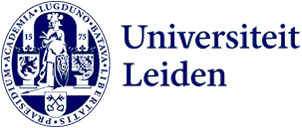Programme
The LDE Space & Society Honours Programme (15 EC) consists of two courses: a lecture series and a space challenge.
Part 1: LDE Space Fundamentals and Interactions (7 EC)
Experts from the three universities, as well as guest speakers from the space sector, will introduce students to key concepts and insights of the various space disciplines. You will be invited to explore the interaction among these disciplines through practical examples, case studies, and discussions. The series consists of four modules:
- Space Applications & Exploration
- Space Business & Innovation
- Space Law, Governance & Society
- Space Engineering & Technology
During the lecture series, you will get a thorough overview of the drivers and boundaries of space activities, as well as global advancements in the space sector and the various applications that rely on it. This fundamental knowledge will prepare you for working on the practical part of the programme, the LDE Space Challenge.
Part 2: LDE Space Challenge (8 EC)
The second part of the programme is the LDE Space Challenge. You will work in a small, interdisciplinary team of students on real-life interdisciplinary space challenges. These challenges will address problems faced by the space sector in current and future space activities, and/or challenges for which the space sector requires an immediate solution. Some examples of possible challenges:
- Identifying risks related to space debris, one of the most pressing problems around the Earth's orbits, and solutions for mitigating and remediating space debris.
- Drafting a mission for the exploration of the Moon or Mars.
- Creating a business plan for a space application to monitor climate change from space.
Through the challenge you will develop vital skills for your future career.
- Design thinking: Learn to tackle a complex problem from scratch. Empathise, define, ideate, prototype, test – and present your solution.
- Analysis of interests: Analyse the actors involved in your problem and identify possible conflicts of interests.
- Interdisciplinary group work: Work with students from other backgrounds. Combine your perspectives in service of a common goal.
- Project management: Manage a long-term and complex project.
You will be helped to nourish these skills throughout the LDE Space Challenge through the guidance from course instructors.
Prospectus
More details about the courses (schedule, skills, learning objectives) can be found in the prospectus.
Assessment methods
LDE Space & Society Honours works with a combination of a pass/fail and a numerical grading system.
- The LDE Space Fundamentals and Interactions are graded on a pass/fail basis, in order to assess the level of knowledge that the students obtain during the lecture series.
- A passing grade allows students to proceed to the LDE Space Challenge, which is graded on a scale of 1-10, based on the student's performance within the team and the quality of the challenge’s outcome.
The goal of this grading system is to encourage intrinsic motivation, critical thinking, and meaningful communication. To stimulate this process, students have different assignments and various feedback moments throughout the course, while being guided by the course instructors.
Practicalities
- When: November to June.
- Where: Leiden, The Hague, Delft and Rotterdam
- Language: English
- Costs: No additional fees. However, you may incur costs for commuting to the location of the sessions, which rotates among the three universities.
